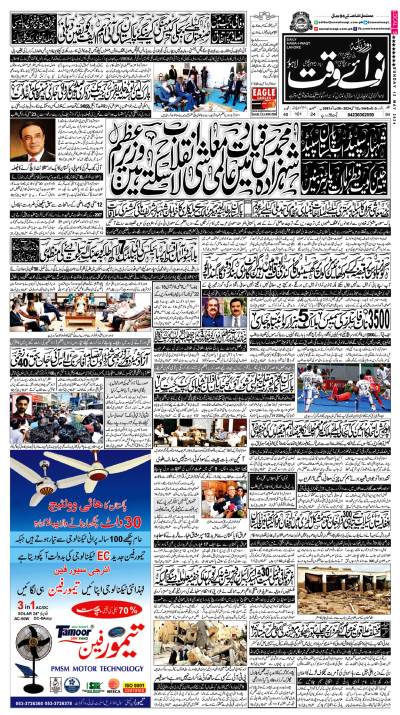ISLAMABAD - Federal Shariat Court Chief Justice Agha Rafiq Ahmed Khan on Monday administered oath of the office to Justice Ashraf Jehan as the FSC’s first woman judge in its 33-year history.
The Federal Shariat Court was established by the President’s order No 1 of 1980 as incorporated in the Constitution of Pakistan, 1973, under Chapter 3/A. The court is a unique institution with no parallel in the entire Muslim world.
The court is entrusted with the responsibility to examine and decide the question whether or not any law or provision of law is repugnant to the injunctions of Islam as laid down in the Holy Quran and the Sunnah of the Holy Prophet (peace be upon him).
A number of women are working as judges, civil judges, senior civil judges, additional district and sessions judges and district and sessions judges in the district judiciary and also as attorneys, law officers/prosecutors and advocates in different parts of the country.
It is also a fact that now women are appointed as judges in the high courts, but there is no female judge in Islamabad High Court and in the Supreme Court of Pakistan.
AFP adds: Ashraf Jehan, 56, who was serving as an additional judge at the Sindh High Court, made history as she took the oath in Karachi.
"It was a historic oath-taking ceremony today when an able lady judge had joined the Shariat Court," Agha Rafiq Ahmed, the chief justice of the Federal Shariat Court of Pakistan, told AFP.
The court was established in 1980 during the rule of military dictator Ziaul Haq as part of a sweeping Islamisation of country's institutions.
It examines the country's laws to check them for conformity with Islamic injunctions and hears appeals under religious legislation known as the ‘Hudood Laws’, which run parallel to the penal code.
"There was no bar in the constitution to make a woman the judge of Shariat Court and there is no discrimination between men and women," Ahmed said.
The chief justice of the Shariat Court, who rarely speaks to the media, said he was pleased to comment on an historic moment.
"I took the initiative as it would send the message in the world that we are enlightened people and would dispel many misconceptions," he said.
Sunday, May 12, 2024
First FSC woman judge sworn in

Amir Muqam vows to resolve GB’s issues
May 12, 2024
LESCO detects 79,021 power pilferers in 232 days
May 12, 2024
Education for all govt’s priority: DC
May 12, 2024
A Global Problem
May 12, 2024
Symbolic Victories
May 12, 2024
Taxing Toxins
May 12, 2024
Stark Hypocrisy
May 11, 2024
Protection For All
May 11, 2024
Data nexus
May 12, 2024
Urban disruption
May 12, 2024
Media representation
May 12, 2024
Data-driven assessments
May 11, 2024
Coastal conservation
May 11, 2024
ePaper - Nawaiwaqt
Advertisement
Nawaiwaqt Group | Copyright © 2024





